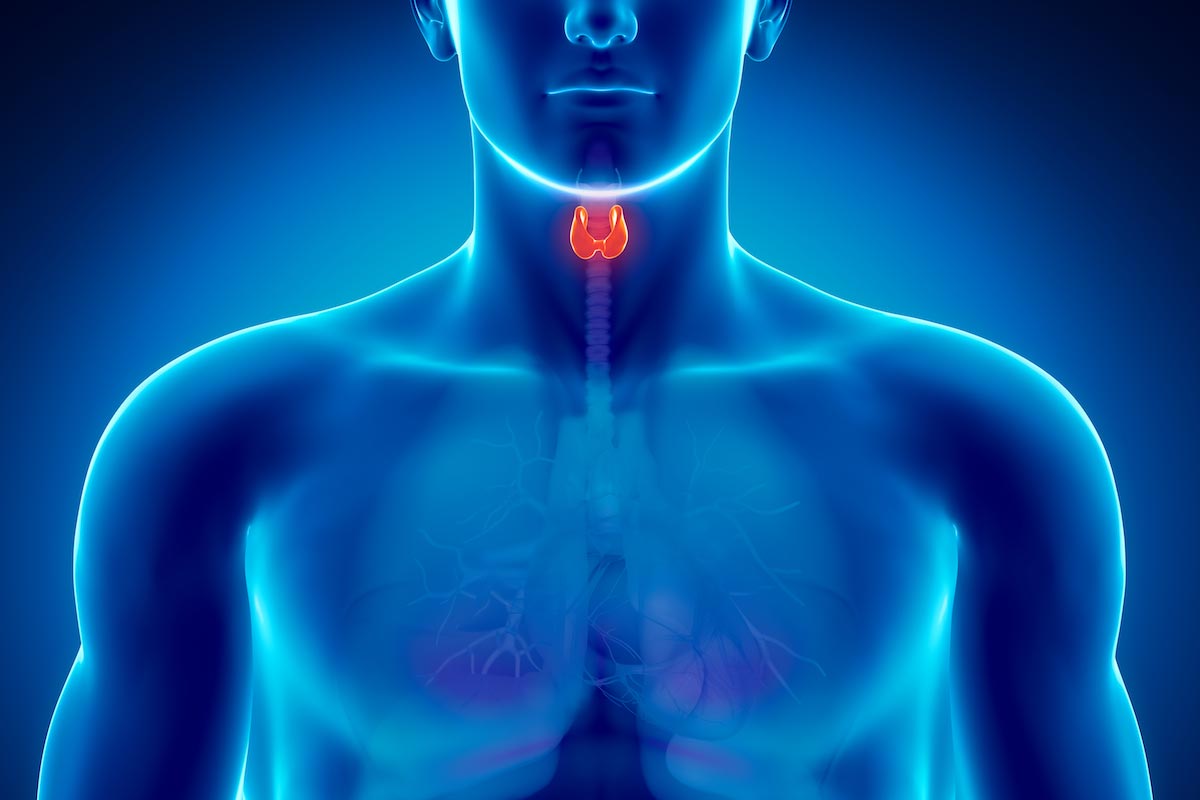 Parler
Parler Gab
Gab
- A groundbreaking study published in the Journal of Clinical Endocrinology & Metabolism found a 30 percent increased risk of thyroid disease within a year for individuals who received mRNA COVID-19 vaccines compared to those who did not. This translates to over 4,000 additional cases in the vaccinated group.
- The study, conducted by Taiwanese scientists, analyzed data from over 2.3 million patients using the TriNetX database, which includes over 116 million American patients. The research spanned from Jan. 1, 2022, to Dec. 31, 2023, and meticulously matched vaccinated and unvaccinated cohorts to ensure comparable medical histories.
- The findings suggest that mRNA vaccines may trigger autoimmune responses, with the thyroid gland being particularly susceptible. The immune system may attack the body, leading to conditions like subacute thyroiditis, hyperthyroidism and hypothyroidism.
- A subgroup analysis of 900,000 individuals who received only one mRNA vaccine dose showed an even higher risk – almost double – of developing an underactive thyroid and a 25 percent higher risk of developing an overactive thyroid. This underscores the potential risk even with a single dose.
- The study's implications extend globally, particularly for countries heavily reliant on mRNA vaccines. The findings highlight the need for continued monitoring, larger multi-center studies and transparency in vaccine safety. Regulatory agencies are urged to consider these findings when evaluating vaccine safety guidelines.
The broader public health implications
Thyroid diseases, while often manageable, can lead to serious complications if left untreated. An underactive thyroid can cause high cholesterol and heart problems, while an overactive thyroid can lead to weight loss, anxiety and an irregular heartbeat. The implications of this study extend beyond the United States. Countries heavily reliant on mRNA vaccines, such as Israel and the United Kingdom, may also see similar trends in thyroid disease incidence. As Smith pointed out, "This is a global issue that requires a coordinated international response." While the study provides compelling evidence, more research is needed to confirm the findings and understand the underlying mechanisms. The authors called for "larger, multi-center studies with longer follow-up periods" to further investigate the link between mRNA vaccines and thyroid disease. Regulatory agencies, such as the U.S. Food and Drug Administration (FDA) and the European Medicines Agency (EMA), will need to consider these findings when evaluating the safety of mRNA vaccines. Smith suggested, "Regulators should take these findings seriously and consider updating their guidelines for post-vaccination monitoring." In summary, the study provides strong evidence of a link between mRNA COVID-19 vaccines and an increased risk of thyroid disease. The findings underscore the need for continued monitoring, research and transparency in vaccine safety. As the world grapples with the long-term impacts of the pandemic, this study serves as a reminder that vigilance and open dialogue are essential for protecting public health. (Related: Real-time vaccine injury tracking system aims to address "regulatory malpractice" in U.S. surveillance.) Watch the video below that talks about the ban on mRNA vaccines. This video is from the Tanjerea channel on Brighteon.com.More related stories:
Victory for health freedom: HHS drops COVID-19 vaccine mandates for children and pregnant women. European Court of Justice: Healthcare professionals who promoted or administered COVID-19 vaccines are CRIMINALLY LIABLE for any harm caused. Yale study validates COVID vaccine injuries, offering hope to millions who were silenced by medical gaslighting.Sources include:
AlexBerenson.Substack.com PubMed.NCBI.NLM.NIH.gov Brighteon.comCentenarians’ genetic and lifestyle secrets unlock path to living healthy to 100
By Willow Tohi // Share
Coinbase data breach exposes high-value crypto holders to cyber criminals
By Laura Harris // Share
Study: Renewable energy boom fails to displace fossil fuels
By Ramon Tomey // Share
Russia-Ukraine war escalates as Germany lifts missile restrictions, risking broader conflict
By Finn Heartley // Share
CDC targets sick children and pregnant women for covid vaccines in controversial new policy
By Finn Heartley // Share
This overlooked class of food additives is linked to Crohn’s disease and cancer
By Lance D Johnson // Share
Governments continue to obscure COVID-19 vaccine data amid rising concerns over excess deaths
By patricklewis // Share
Tech giant Microsoft backs EXTINCTION with its support of carbon capture programs
By ramontomeydw // Share
Germany to resume arms exports to Israel despite repeated ceasefire violations
By isabelle // Share










